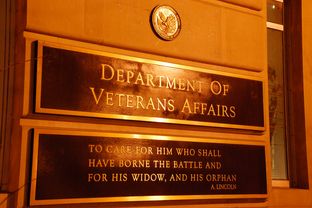
Alexa Ura, Texas Tribune
Amid recent allegations of excessive wait times for veterans at several VA clinics across the nation, the quality of care at VA medical centers in Texas is getting extra attention. And while the state is limited in what it can do at the federal facilities, legislators are still seeking to take action to help curb wait times.
“While our reality is that this is a federally run and funded agency that serves Texas residents, that does not mean that Texas cannot ensure that our veterans are taken care of in the honorable way they deserve and have earned,” said state Sen. Leticia Van de Putte, chairwoman of the Senate Veteran Affairs and Military Installations Committee. “It should not take a whistleblower and numerous deaths to raise the flag on issues like these.”
As part of a nationwide investigation, the VA is auditing scheduling practices at its medical facilities in Texas after whistleblowers in San Antonio, Temple and Austin alleged, in recent weeks, that staffers at federal clinics were instructed to manipulate the scheduling documents to reflect shorter wait times for veterans seeking medical services.
One proposal being offered to help the state’s 1.7 million veterans is coming from Van de Putte and state Rep. José Menéndez, the chairman of the House Defense and Veterans’ Affairs Committee, who are recommending that the state expand its “strike force team” to include an oversight group that would serve as a watchdog for veterans, operating independently of the VA.
The strike force team, which was created in 2012 as part of the Texas Veterans Commission in response to a massive backlog in the federal system of disability claims for Texas veterans, is made up of staffers of the Veterans Commission. The proposal would expand the mission and staffing of the strike force team to gather veterans’ complaints.
Under the proposal, the strike force team would facilitate a new hotline or website for veterans seeking assistance with the medical services they are receiving through the VA. The team would also help create a database to collect veterans’ complaints, which would assist in determining which facilities are lagging in its services.
The state’s oversight group could provide local, independent oversight of the VA’s medical facilities in the state while serving as an advocate for Texas veterans by pointing out problematic facilities to the VA and holding the department accountable, Menéndez said.
The lawmakers intend to hold hearings on the issue, including a Senate hearing slated for June 12 in Houston, to obtain information from the commission and veterans groups about wait times in the state.
The proposal would likely require the authorization of Gov. Rick Perry, Lt. Gov. David Dewhurst and House Speaker Joe Straus. Van de Putte and Menéndez are confident that they will get that approval and that the feds would be open to the creation of the oversight group because of the strike force team’s success in 2012.
“It worked for us on reducing the backlog of claims for veterans,” Menéndez said. “This is not a stretch from that.”
There are six medical centers, 20 outpatient clinics and 36 community-based outpatient clinics in the state that fall under the VA’s purview.
As of this week, the VA had already audited several Texas facilities, including clinics in San Antonio, Temple, Harlingen and Austin. Officials who oversee the facilities were not informed about any issues that came up during the audits, according to Jessica Jacobsen, a VA regional deputy director for public affairs.
The Veterans Commission, which is largely focused on assisting veterans in filing claims to obtain benefits, and Texas veterans groups say they are on board with creating additional oversight at VA facilities.
But they argue that the problem of lengthy wait times in the state is rooted in the lack of medical providers treating veterans and that those wait times will persist until the system increases the number of doctors available to treat patients.
Jim Richman, director of claims representation and counseling for the Veterans Commission, said that until the federal government addresses the need for more medical providers, the state will continue to hear from veterans about excessive wait times.
But state officials’ hands are somewhat tied on that issue. The state cannot provide additional medical professionals to help with the high patient-to-doctor ratio in the VA’s medical facilities, and it has no sort of supervisory role over clinics.
Richman said the veterans commission often hears rumors about veterans who are left to wait for months before obtaining a doctor’s appointment.
“But we don’t have the capability of ordering clerks to show us the paperwork,” Richman said. “The state of Texas has no authority or jurisdiction over the VA, and we’re not part of the VA.”
Bill West, state adjutant for the Texas department of the American Legion, a veterans group that represents all armed services posts in Texas, said that funding for medical service operations has not kept up with the growing population of veterans, which has almost tripled in the last 15 years.
West argued that the current controversy calls for a long-needed boost to properly respond to the demand for more medical providers.
“This problem didn’t pop up overnight,” West said. “It’s been going on for the last 10 to 15 years.”
_______________________________________________________
This article originally appeared in The Texas Tribune
